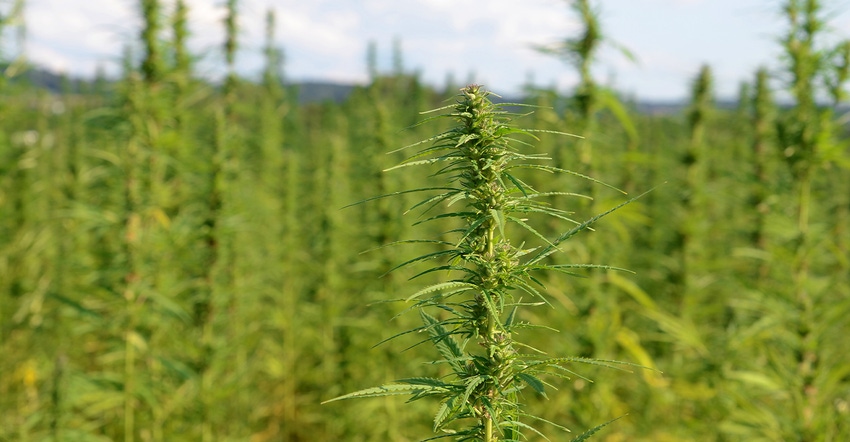
The Missouri Department of Agriculture has more than 600 people signed up to receive email updates regarding hemp production in the state, says Alan Freeman, Missouri Hemp Program administrator.
With interest growing, the department posted proposed rules for the Missouri Industrial Hemp Program three weeks before the comment period officially opens online, offering interested growers a chance to look over the 23-page document.
The 2018 Farm Bill allowed for federal industrial hemp production. Earlier this year, Missouri Senate Bill 133 was signed into law, removing the state’s limitation of only 2,000 acres total of hemp production across the state. Now, the department is proposing the regulations to ensure that industrial hemp seed can be sown in farm fields in 2020.
Before venturing into this new agriculture crop, farmers must know the rules, which include allowing the state ag department or law enforcement entry onto the farm with or without cause whether farmers are home or not.
Just last week, the state published its first draft of the rules. Here are some more highlights:
Registration required before planting; permit required to sell seed. Producers must have a valid producer registration to grow hemp or possess seed. A separate permit called an Agricultural Hemp Propagule and Seed permit will be required for those wishing to distribute or sell hemp seed and cuttings. The registration and permitting processes require an FBI fingerprint background check and a criminal history clear of a felony for a controlled substance within 10 years of applying. Both permits are good for three years and cost $750 annually. After the third year, people must reapply.
Know your THC. Tetrahydrocannabinol or THC is what separates hemp from marijuana. A delta-9 THC concentration on a dry weight basis that is less than or equal to 0.3% is deemed industrial hemp and may be sold to the public in Missouri. Any higher levels and the crop is destroyed as required by state law and in accordance with state ag department protocol.
Sample before harvest. Hemp growers must collect samples within 15 days before harvest or taking cuttings of parent plants. There must be two composite samples of each variety, one sent to an independent lab, the other kept on site. It must test less than or equal to 0.3% in order to harvest.
Don’t delay destruction. Any hemp testing out of compliance must be destroyed. Growers have only 15 days to comply. The Missouri State Highway Patrol or local law enforcement agency must be contacted and certify that the crop was destroyed. There is no compensation for destroying industrial hemp.
The public comment period will open on the Missouri Department of Agriculture’s website Nov. 1 and remain open for 30 days. Missouri’s final rules will incorporate citizen feedback from this process, as well as federal regulatory guidance from the USDA.
The department anticipates that applications for Missouri’s Industrial Hemp Program will be available online by Dec. 2.
The complete proposed rules can be found at agriculture.mo.gov.
About the Author(s)
You May Also Like






